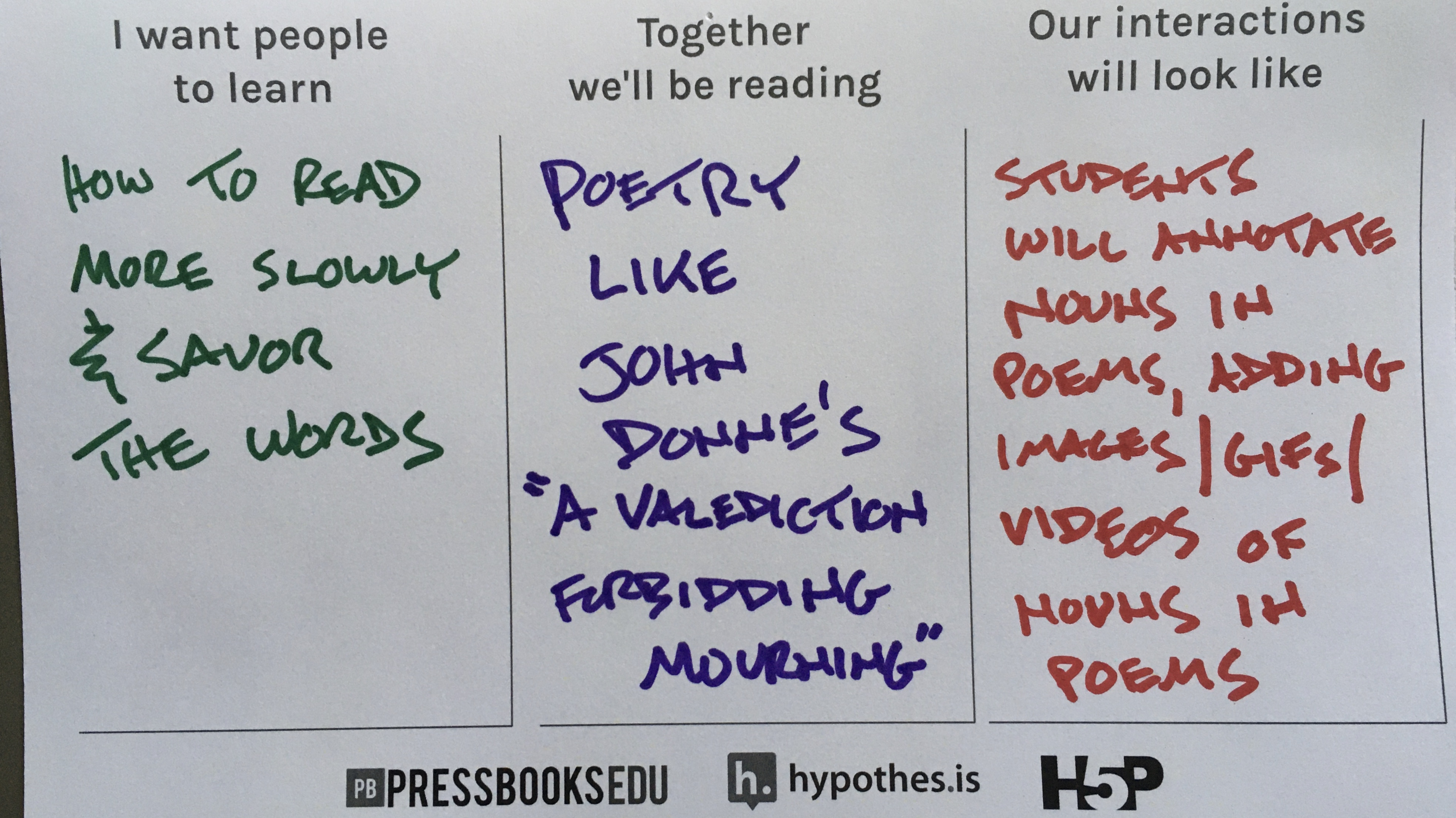A simple way to enrich online classes by making up tiny #SocialReading activities to help people practice key skills. Making a new tiny social reading activity is easy, just complete three sentences:
- I want people to learn…
- Together we’ll be reading…
- We’ll share…
This idea started with a poster session Jeremy Dean (@dr_jdean), Steel Wagstaff (@steelwagstaff) and I gave at EDUCAUSE 2019 #EDU19. We used it to show how one can invent simple, but powerful learning activities that could be delivered face-to-face or online, using tools like Pressbooks, Hypothesis and H5P.
I’ve shared some example “tiny social reading activities” from the poster session and the Twitter thread where I reintroduced this idea. Share your own examples, either as annotations or comments here, and/or added on to that Twitter thread. What are simple ways you can imagine learners sharing their engagement with texts to make reading more visible, active and social?




